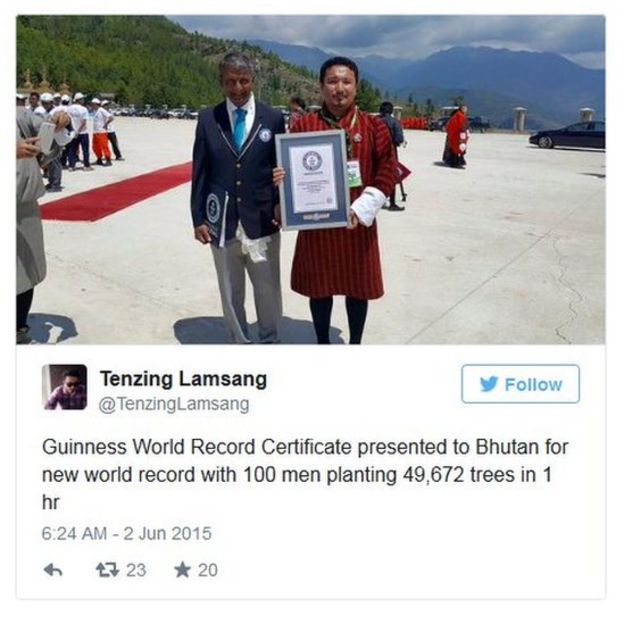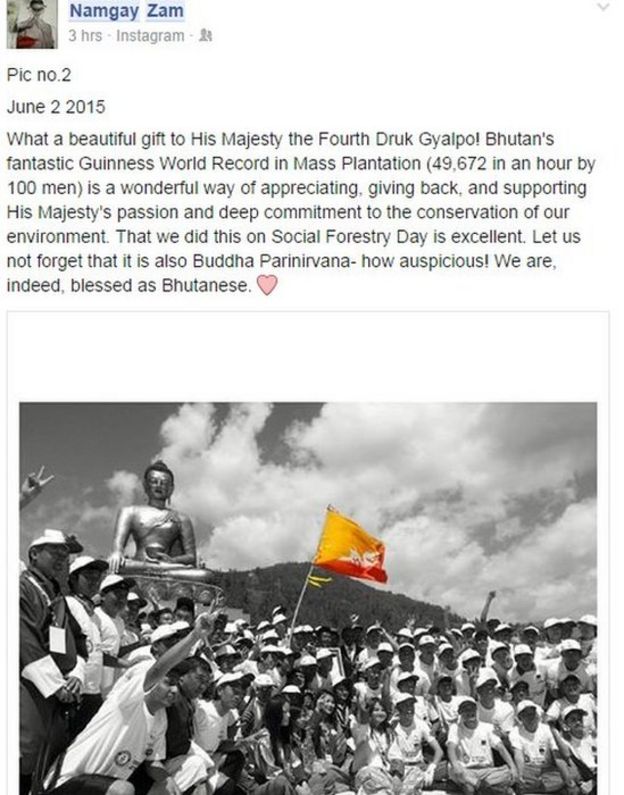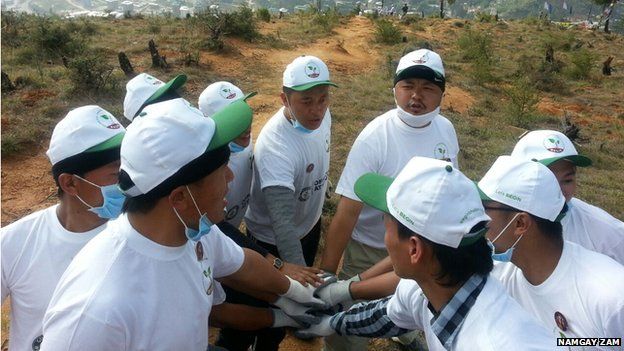A team of 100 volunteers in Bhutan has set a new world record by planting 49,672 trees in one hour.
They smashed the previous record by almost 10,000 trees. It had been set by an Indian team three years ago.
Bhutan’s planters gathered in the capital, Thimphu, for their feat, which Guinness World Records confirmed.
The government of the mountainous Himalayan kingdom lays great emphasis on protecting the environment. Bhutan has more than 75% forest cover.
“The whole country is happy. Our world record shows that Bhutan’s young generation wants a clean and green future. We will never compromise on that,” tree planting event organiser Karma Tshering said.
The Buddhist nation of just over 700,000 people is sandwiched between India and China. It has tried hard to protect itself from the influence of the outside world, only permitting television and the internet just over a decade ago.
The tree record was welcomed by many on social media platforms in Bhutan.


The official Twitter account of Guinness World Records retweeted the Bhutanese achievement.
Mr Tshering said that he and other volunteers planned the event in part because former King Jigme Singye Wangchuck loves the environment and “we respect him for that”.
“He is marking his 60th birthday in 2015 and we thought what can be a better gift than planting so many trees in his honour?” Mr Tshering explained.
The team practised for more than a week – Sherub Dorji, one of the volunteers, said that helped build physical strength and also planting technique.

The health of Bhutan’s environment is one of the key indicators of the country’sfamed Gross National Happiness index.
Senior Bhutanese journalist Namgay Zam says team members planted an average of eight trees each per minute on steep and unfriendly terrain.
“I was blown away,” she said. “And we have our result: Almost 10,000 more than India’s previous record of 40,885 trees in 2012. I am so proud of our planters.”
Mr Tshering says he is confident the saplings will be looked after well because the volunteers have promised to look after them until they become bigger. Species planted include indigenous ones such as Blue Pine and Cypress.
“We have pledged to work in groups for at least six years. I can’t wait to see a forest in the area,” Mr Dorji said.





